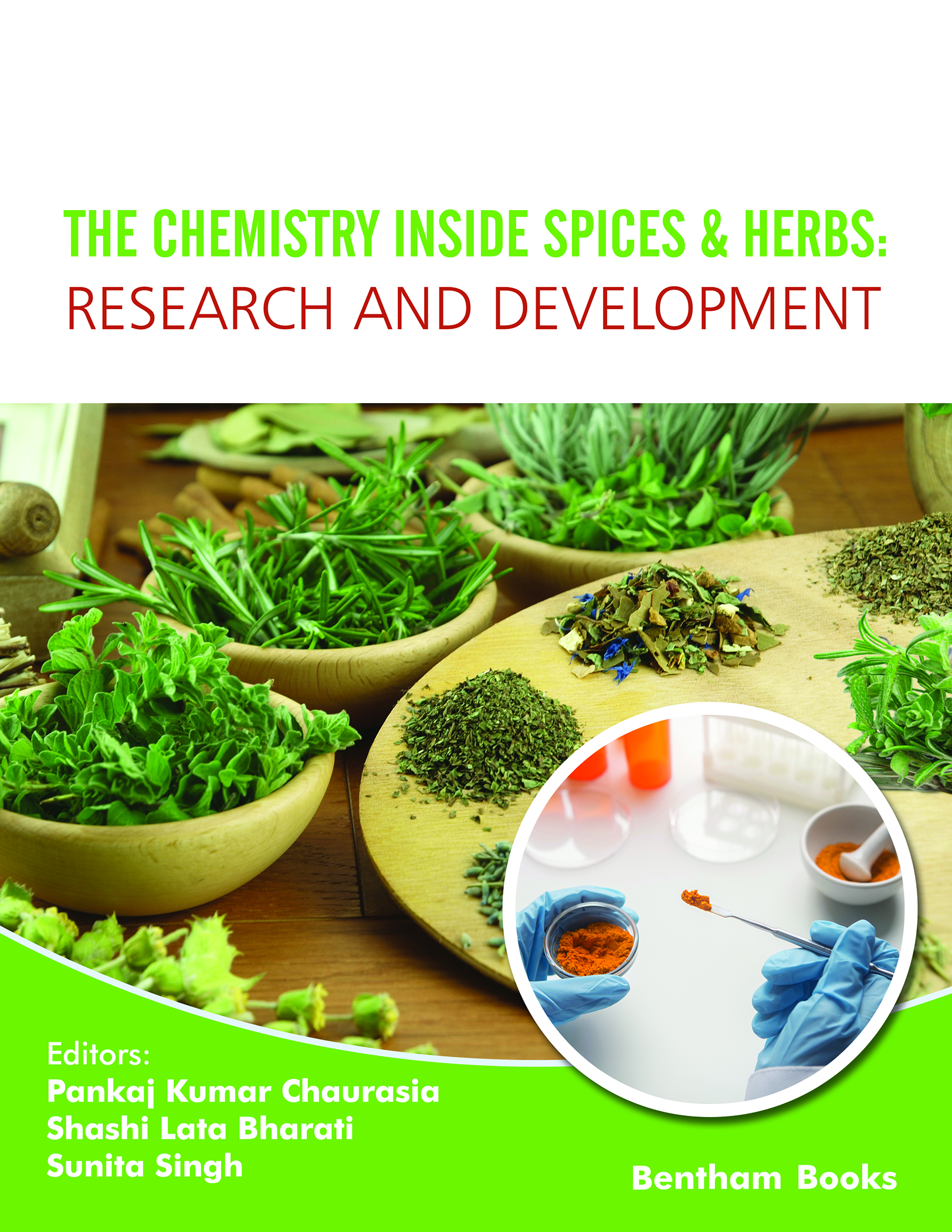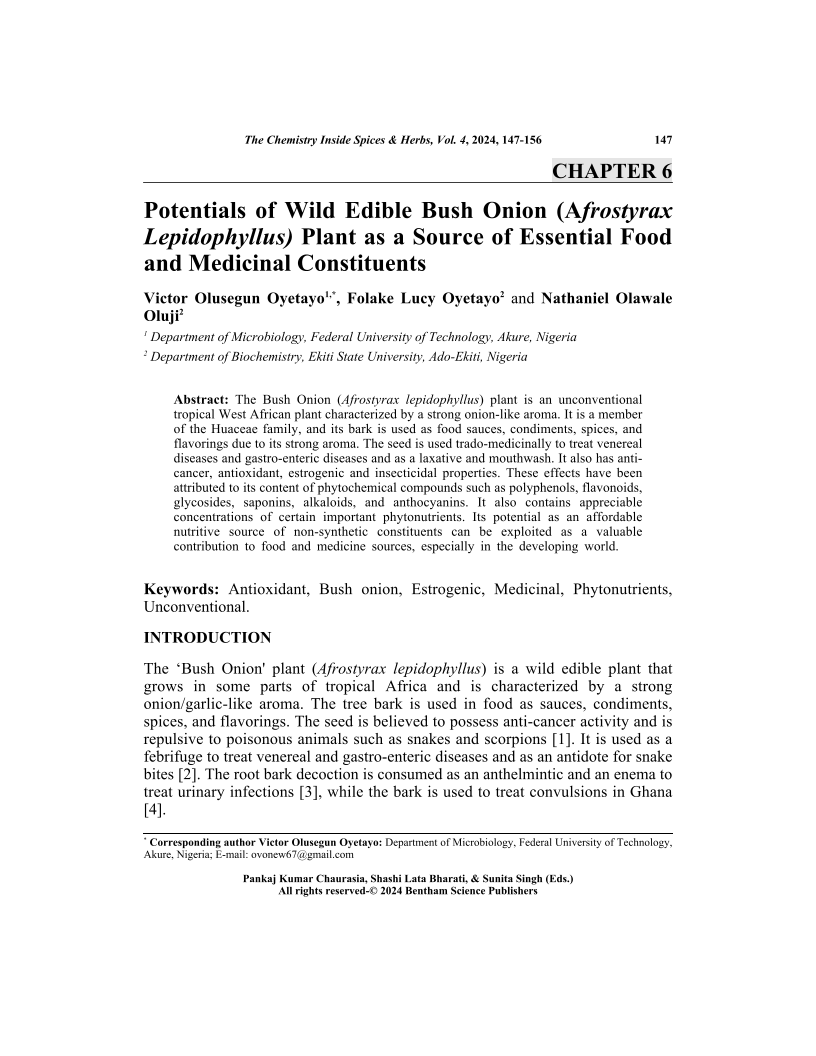Potentials of Wild Edible Bush Onion (Afrostyrax Lepidophyllus) Plant as a Source of Essential Food and Medicinal Constituents

- Authors: Victor Olusegun Oyetayo1, Folake Lucy Oyetayo2, Nathaniel Olawale Oluji3
-
View Affiliations Hide Affiliations1 Department of Microbiology, Federal University of Technology, Akure, Nigeria 2 Department of Biochemistry, Ekiti State University, Ado Ekiti, Nigeria 3 Department of Biochemistry, Ekiti State University, Ado-Ekiti, Nigeria
- Source: The Chemistry inside Spices & Herbs: Research and Development: Volume 4 , pp 147-156
- Publication Date: July 2024
- Language: English
Potentials of Wild Edible Bush Onion (Afrostyrax Lepidophyllus) Plant as a Source of Essential Food and Medicinal Constituents, Page 1 of 1
< Previous page | Next page > /docserver/preview/fulltext/9789815196832/chapter-6-1.gif
The Bush Onion (Afrostyrax lepidophyllus) plant is an unconventional tropical West African plant characterized by a strong onion-like aroma. It is a member of the Huaceae family, and its bark is used as food sauces, condiments, spices, and flavorings due to its strong aroma. The seed is used trado-medicinally to treat venereal diseases and gastro-enteric diseases and as a laxative and mouthwash. It also has anticancer, antioxidant, estrogenic and insecticidal properties. These effects have been attributed to its content of phytochemical compounds such as polyphenols, flavonoids, glycosides, saponins, alkaloids, and anthocyanins. It also contains appreciable concentrations of certain important phytonutrients. Its potential as an affordable nutritive source of non-synthetic constituents can be exploited as a valuable contribution to food and medicine sources, especially in the developing world.
-
From This Site
/content/books/9789815196832.chapter-6dcterms_subject,pub_keyword-contentType:Journal -contentType:Figure -contentType:Table -contentType:SupplementaryData105

